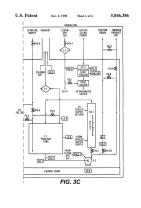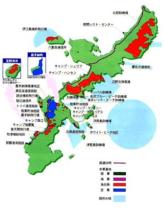What is an Agent Orange?
Agent Orange is a herbicide and defoliant chemical that gained notoriety for its use during the Vietnam War. It is a mixture of two herbicides, 2,4,5-T and 2,4-D, along with trace amounts of a contaminant called dioxin. The chemical was used by the U.S. military as part of Operation Ranch Hand, a defoliation program aimed at destroying the dense jungle vegetation in Vietnam to expose enemy hiding spots.
The name "Agent Orange" comes from the color-coded identification bands that were used on the barrels containing the herbicide. It was one of several "rainbow herbicides" used during the Vietnam War, with colors ranging from Agent Orange to Agent Purple.
Tragically, Agent Orange was later found to be contaminated with the highly toxic compound, 2,3,7,8-tetrachlorodibenzo-p-dioxin (TCDD), a type of dioxin. Dioxins are persistent environmental pollutants that can cause a range of health issues, including cancer, reproductive and developmental problems, and immune system disorders. Exposure to Agent Orange has been linked to various health problems among military personnel who served in Vietnam, as well as among the Vietnamese population.
The use of Agent Orange has had long-lasting environmental and health consequences, leading to extensive efforts to clean up affected areas and provide support for those affected by its use. The legacy of Agent Orange continues to be a matter of concern and study, with ongoing efforts to address the health and environmental impacts of its historical use.
What is Agent Orange and its significance in history?
Agent Orange was a notorious herbicide and defoliant mixture used by the U.S. military during the Vietnam War (1955-1975) to clear dense vegetation and deprive North Vietnamese and Viet Cong forces of cover. It was a 50/50 blend of two herbicides: 2,4,5-T and 2,4-D. While the primary purpose was to expose enemy troops and their supply routes, Agent Orange's widespread use led to devastating environmental and health consequences that continue to impact Vietnam and its people to this day.
2. Origins and Effects of Agent Orange
The origins of Agent Orange can be traced back to the early 1940s, when the U.S. military began experimenting with herbicides as defoliants in tropical forests. During the Korean War (1950-1953), Agent Orange was first used on a large scale to clear forests and disrupt enemy supply lines. By the time of the Vietnam War, Agent Orange had become a key tool in the U.S. military's herbicidal warfare program, Operation Ranch Hand.
The toxic effects of Agent Orange are primarily attributed to the presence of dioxin, a contaminant in the 2,4,5-T component. Dioxin is a highly persistent organic pollutant (POP) that remains in the environment for decades, accumulating in soil, water, and the food chain. Its toxicity can cause a wide range of health problems, including:
Cancer: Dioxin is a known carcinogen, linked to an increased risk of various types of cancer, including leukemia, lymphoma, and lung cancer.
Birth defects: Exposure to dioxin during pregnancy can lead to a range of birth defects, including spina bifida, cleft lip and palate, and intellectual disabilities.
Skin and nerve damage: Dioxin exposure can cause skin lesions, nerve damage, and other health problems.
Immune system suppression: Dioxin can weaken the immune system, making individuals more susceptible to infections.
3. Usage and Lasting Implications
Between 1961 and 1971, the U.S. military sprayed over 12 million gallons of Agent Orange over vast areas of Vietnam, covering approximately 25% of the country's southern region. The effects of this widespread spraying have been profound and long-lasting.
Environmental Impact:
Deforestation and Ecosystem Disruption: Agent Orange caused widespread deforestation, destroying millions of acres of forests and disrupting delicate ecosystems.
Soil and Water Contamination: Dioxin from Agent Orange has contaminated soil and water sources, posing ongoing health risks to Vietnamese communities.
Biodiversity Loss: The destruction of forests and ecosystem disruption has led to a decline in biodiversity and the loss of plant and animal species.
Health Impact:
High Rates of Cancer and Birth Defects: Vietnam has reported significantly higher rates of cancer and birth defects among populations exposed to Agent Orange.
Chronic Health Problems: Exposure to Agent Orange has been linked to a range of chronic health problems, including skin diseases, nerve damage, and immune system disorders.
Intergenerational Effects: The toxic effects of dioxin can be passed down through generations, affecting the health of children and grandchildren of those exposed to Agent Orange.
The legacy of Agent Orange continues to cast a shadow over Vietnam, with its enduring environmental damage and devastating health consequences. The Vietnamese government estimates that over three million people have been affected by Agent Orange, including many veterans of the war and their families. The international community has a responsibility to acknowledge the harm caused by Agent Orange and provide assistance to those affected by its toxic legacy.













